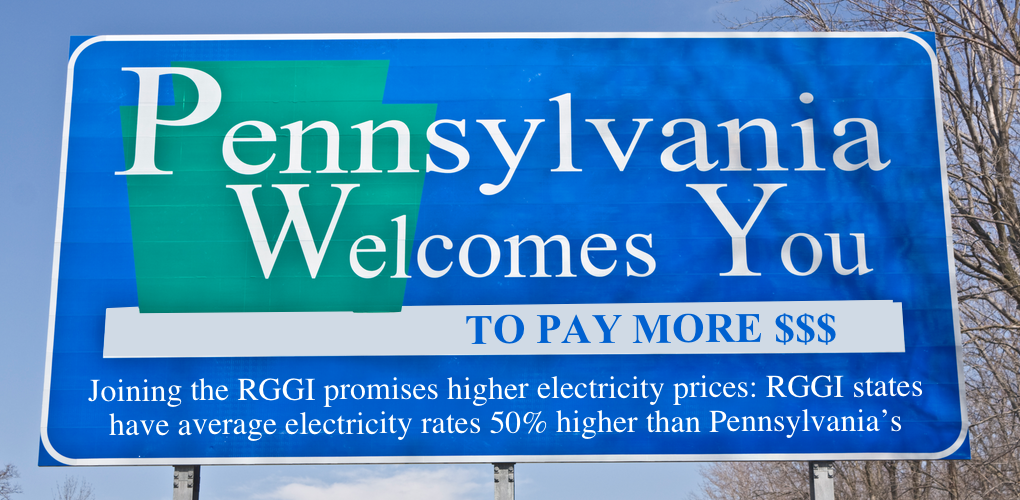
Pennsylvania is Flirting with Self-Imposed Energy Disaster
Americans can’t afford to pay more for electricity, especially with millions out of work in the midst of pandemic-induced economic upheaval. Yet, higher electricity costs and economic turmoil are coming if lawmakers continue to pursue policies that mandate an aggressive pivot away from existing baseload power to intermittent, more expensive alternatives.
Pennsylvania is now on the front lines of this policy battle. Governor Tom Wolf is trying to circumvent the Pennsylvania General Assembly and push the commonwealth into the 10-state Regional Greenhouse Gas Initiative (RGGI). The move promises little in the way of benefits but does guarantee extraordinary costs.
By the governor’s own estimates, joining the RGGI would impose a $2.36 billion tax on fossil fuel power plants in Pennsylvania over the next 10 years. That $2.36 billion RGGI tax will have a cascading effect on communities across the state. Thousands of Pennsylvanians will lose their jobs, and electricity consumers – especially low-income and fixed-income households – will likely face significantly higher bills that they simply can’t afford.
How much more? Virginia, which recently moved to joined RGGI, estimates that doing so will impose as much as $6 billion more in electricity costs on its ratepayers over the next 10 years. That estimate could very well prove to be too low.
States currently in the RGGI, like New York, Connecticut and Massachusetts, boast some of the highest electricity rates in the country. In fact, on average, electricity rates in RGGI states are 50 percent more than they are in Pennsylvania.
If the RGGI fancies itself a trailblazer in addressing carbon emissions, it has blazed a trail no state should follow. New England has dismantled its own fuel diversity, closing well operating coal plants, throttling the construction of needed natural gas pipeline capacity, and even closing reliable, baseload nuclear power capacity.
The result of this policy malpractice is some of the highest electricity prices in the country coupled with an escalating fuel security crisis. The New England grid operator has gone so far as to warn that 30 percent of the region’s natural gas generating fleet could be without fuel on particularly cold days. This is hardly the future Pennsylvania – or any other state – should want or pay more to achieve.
What Pennsylvanians want – what consumers across the country want – is a recommitment to energy affordability and a path towards emissions reduction that doesn’t impose higher energy prices or the dismantling of critical industries. In fact, a staggering 85 percent of Americans are concerned with rising electricity rates.
Governor Wolf’s agenda is diametrically opposed to the leadership consumers are looking for. Energy and emissions leadership is not going to be achieved by killing community-supporting jobs and imposing de-facto energy taxes on consumers who can’t afford them.
All the Governor has to do is look just outside Pittsburgh for a better approach. Pennsylvania’s Consol Energy recently received a grant from the Department of Energy to design a small coal-fired power plant that would capture its carbon dioxide emissions and store it underground. And the U.S. National Energy Technology Laboratory is pursing cutting-edge research to develop the energy technologies of tomorrow that can reduce emissions from the fuels that meet the vast majority of the world’s energy and will continue to do so well into the future. The right approach to U.S. energy and emissions leadership is through technology – technology that holds down energy costs, improves reliability and creates globally replicable solutions.
- On November 18, 2020
